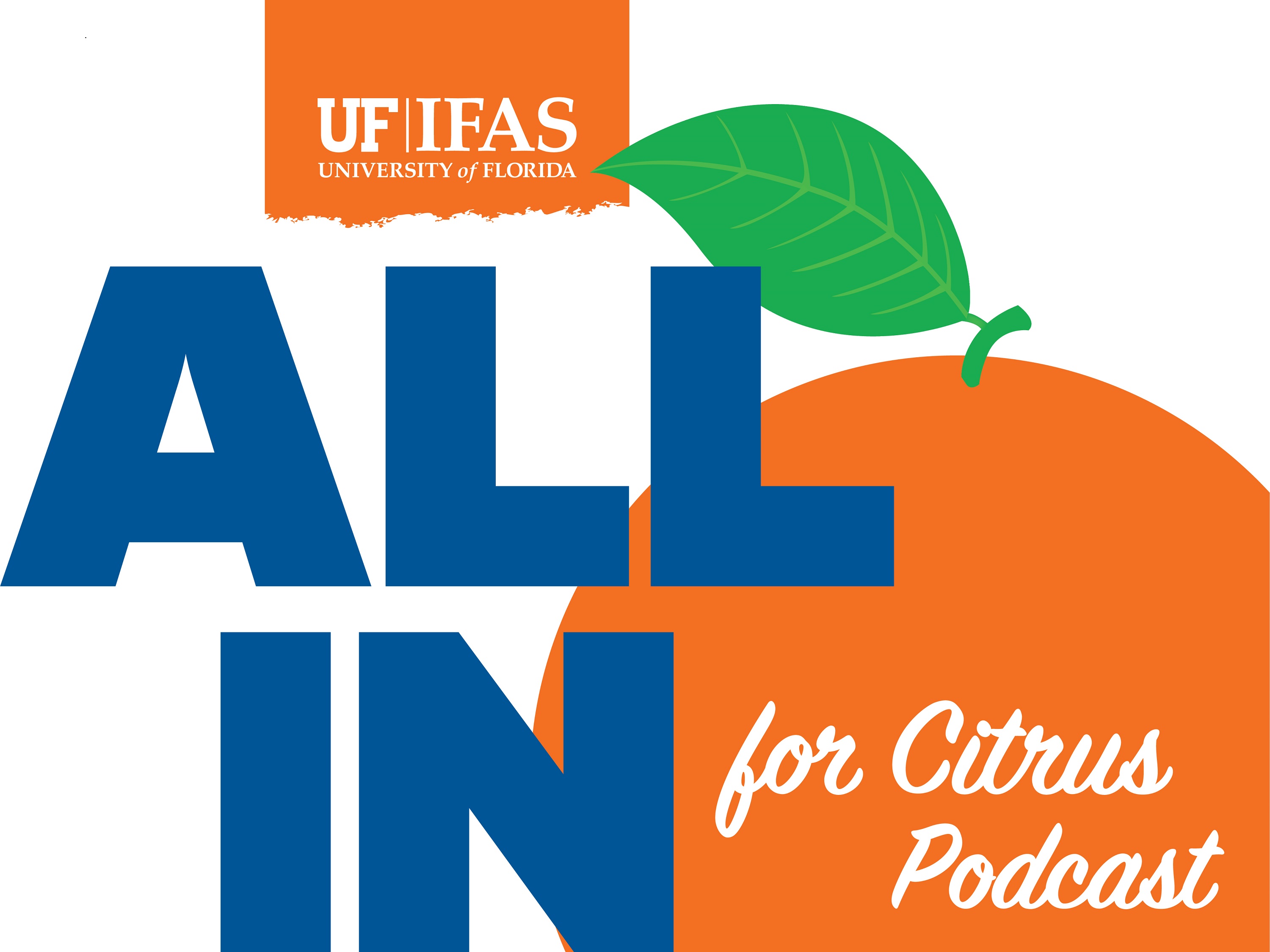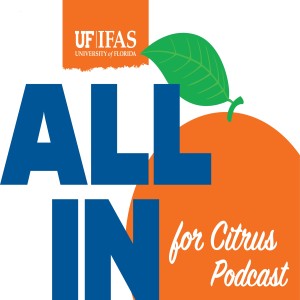
33.3K
Downloads
82
Episodes
The University of Florida Institute of Food and Agricultural Sciences and Southeast AgNet are partnering to provide the latest news on citrus-related research in a monthly podcast. The podcast, “All in for Citrus,” will feature short interviews with scientists working to find solutions to citrus greening and other devastating citrus diseases.
Episodes

Tuesday Jul 23, 2024
All In For Citrus, Episode 71 July 2024
Tuesday Jul 23, 2024
Tuesday Jul 23, 2024
As citrus growers try to stabilize production in the midst of endemic HLB, maintaining the industry’s infrastructure is critically important. Two key sectors of that infrastructure are citrus nurseries and juice processors.
In the July episode of the All In For Citrus podcast, Michael Rogers, director of the University of Florida Institute of Food and Agricultural Sciences (UF/IFAS) Citrus Research and Education Center, discusses research efforts aimed at helping those two sectors.
“One of the vital parts of our industry is the citrus nursery segment, and right now, they are having a hard time moving plant material and getting orders,” Rogers says. “If these nurseries go out of business, we won’t have anywhere to go to get our trees. So, we feel it is really important that we help support them.”
Among the efforts to support nurseries is the promotion of growing dooryard citrus through the UF/IFAS Home Citrus Project. Dooryard citrus has been an important lifeline for nurseries as commercial demand has fallen off due to HLB.
“Homeowners typically have one or two trees in their yard and want to baby those trees,” Rogers says. “We have stepped back into the homeowner arena with some of our educational programs.”
The project is engaging with Master Gardeners to give them tools to teach about best practices when it comes to raising a citrus tree at home. A homeowner newsletter and a website dedicated to home growing are also part of the project.
On the juice processing side, Rogers discusses research by Yu Wang, UF/IFAS associate professor of food science. She has recently identified a compound in citrus peels that helps inhibit a bacterium in the human gut that can contribute to cardiovascular disease.
“In an average year, we generate 5 million tons of orange peel waste just from processing round oranges,” Rogers says. “About half of that goes to cattle feed, but the other half is basically thrown away at the processors’ expense.”
Wang’s research could lead to a dietary supplement to encourage heart health using orange peel as the source. This could give orange juice processors a much needed new revenue stream.
To hear more about efforts to support nurseries and processors, listen to the July episode of All In For Citrus. The podcast is a partnership between UF/IFAS and AgNet Media.

No comments yet. Be the first to say something!